Well, believe it or not, summer is right around the corner. That means having the kids at home again, all day, every day. The summer can be a great time to make memories with your kids and it can provide really exceptional educational opportunities. However, it can also overwhelm you pretty quickly if you aren’t prepared for long afternoons with restless children. I still remember a lot of the great summer learning activities I did when I was a kid. They can really help shape a child’s personality and interests in a way that school often can’t. So here’s a list of ideas to help you make summer learning fun for your child.
10 Fun Summer Learning Activities For Kids
Summer break offers young people a chance to recharge, but it can also be an opportunity to boost student achievement through engaging, hands-on activities. Many school districts are turning to summer school programs that incorporate best practices to help students stay on track and even advance to the next grade level. These programs aim to make learning fun and meaningful while helping to close gaps that can widen during time away from the classroom.
Summer vacation doesn’t have to mean a break from learning—there are plenty of fun and educational ways to keep younger children and elementary school students engaged at home. To help prevent the summer slide and keep literacy and math skills sharp, families can explore creative camps, partner with community organizations, or simply enjoy hands-on activities together. Whether it’s reading stories, playing math games, or doing simple science experiments, these moments can support lifelong learning and prepare kids for the next school year—all while having a whole lot of fun. Here are some fun activities to get you started.
1. Your Friendly Neighborhood Library
Local libraries are a great place for kids to hang out. A sincere love for the written word is one of the most meaningful gifts you can ever give your child. Most libraries have lots of events planned for kids, especially during the summer. These can include storytelling and get-togethers featuring food, games, and other activities. Beyond that, many libraries feature enhanced areas for children, with a variety of classic books as well as educational computer games.
If you treat the library like an obligation or a chore, most kids will sour on the place, which is something you don’t want. Instead, turn a trip to the library into a treat. Let your kids wander around and choose their own books (being mindful of their safety, of course). And make sure you leave there with a stack of books for yourself. There’s no better way to show how enjoyable reading really is.
Check your local library’s website to find out about summer events, and mark your calendar now.
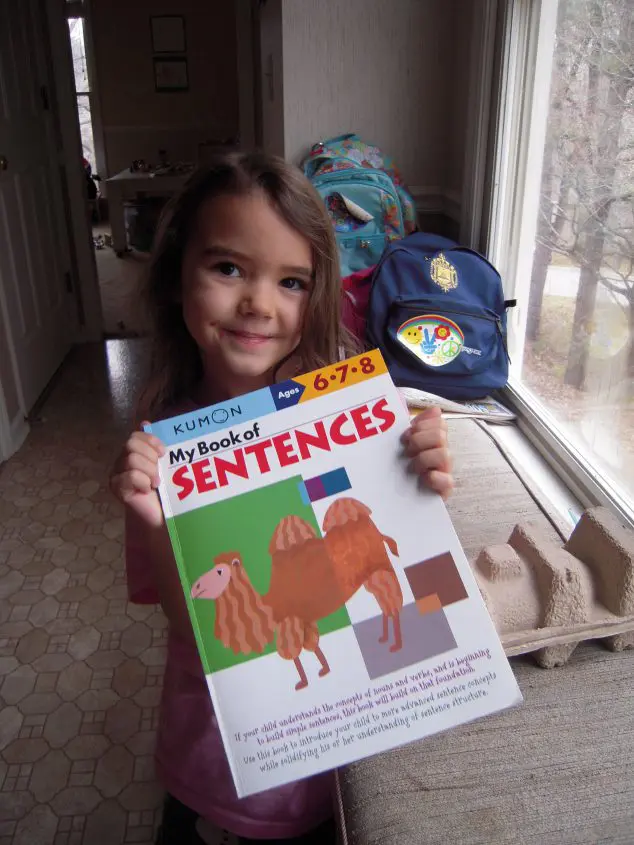
2. Organized Sports
Another fun summer learning activity is sports. Learning the value of exercise and teamwork (and learning that they’re a lot of fun!) is important at any age. Learning to win and lose competitions with grace and dignity is also important–and pretty hard to pick up from online video games.
But organized sports can teach you even more than that–it was through sports, for instance, that I learned to think strategically and tactically, and this skillset has served me tremendously in adulthood.
A few minutes on Google should be able to turn up some local leagues and summer camps if you don’t already know of any. Field sports like soccer, baseball, and football are always popular, and for good reason, but why not consider a 2-week camp for tennis, fencing, or a martial art?
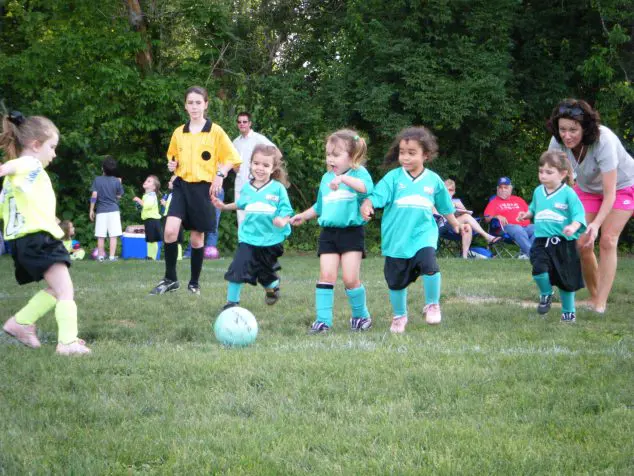
3. The Old-Fashioned Family Vacation
If you’ve got the time and you’re conveniently located, you might consider visiting any of America’s famous historical sites. Some of my fondest memories as a kid were long car trips to places like the Grand Canyon, Monticello, or Kitty Hawk. I won’t pretend that every moment went smoothly, but the experience was valuable and memorable, and I would do it again in a heartbeat.
You might be thinking that there’s no way your young children will fully appreciate the meaning of those places. You’re probably right. But they’ll see that you appreciate them, and they’ll come to value their importance with time. Trust me–it happened to me.
Of course, sometimes your schedule or budget won’t allow a longer trip, but there’s always local history to consider. One of the really convenient things about history is that it happens all over the place! You’d probably be amazed to discover the places of historical interest to be found within a 30 or 45 minute drive from your house; pick a time when the whole family can go, and plan to make a day trip out of it.
To find nearby places that might be worth visiting, you can look your location up on google or wikipedia and cruise around a little bit. You might really surprise yourself with what’s available. Visiting historical spots is certainly a great way to make history come alive and one of the most worthwhile summer learning activities I can think of.
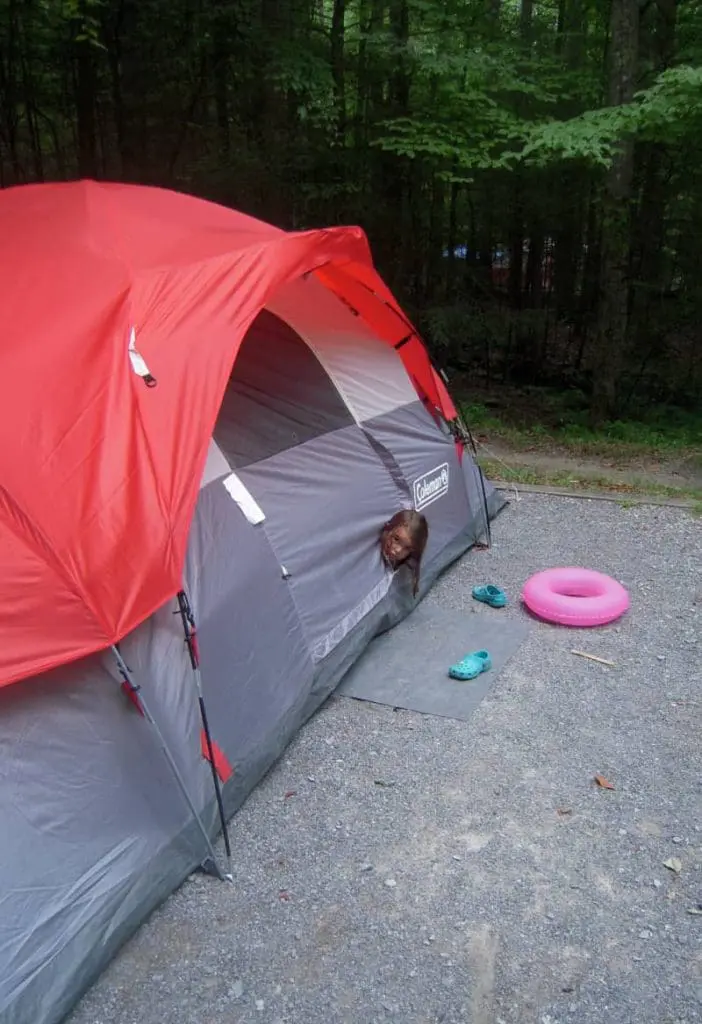
4. Local Summer Plays And Theater Camps
I still remember doing local plays in the summers after first and second grade. A lot of towns have some kind of inexpensive camp where a bunch of kids can learn how to act, do makeup, and all of that stuff, and then put on a show for parents at the end.
It might sound kind of silly, but I still think those early theater experiences were instrumental in helping me learn to speak in front of other people, which is an essential skill for success, whether you’re pitching a proposal or defending a dissertation. Or just asking somebody out.
5. Create A Family Website Or Blog
Knowing how to use computers and the Internet will be critical to your child’s success in life. So why not start messing around with it now?
Web sites can easily be created for free on WordPress.com or tumblr.com. You can supervise your children as they pick out themes to decorate the site, and write articles describing family activities and funny stories. You can take pictures for the site, or even scan old family photos and post them. Finally, you can invite your friends and family to come to the site and leave comments. It could really turn into a beautiful long-term project.
Don’t worry if you have no idea how to do any of that– WordPress, and Tumblr are all designed for people who don’t know how to use them when they start out. Sit down with the kids, read through the web sites, and figure it out together!
Of course, it goes without saying that the Internet can be a dangerous place for unsupervised children, and you should be sure to monitor your child’s online activity at all times. But if the kids’ web activity is safely supervised, the experience of building their own web site can be uniquely empowering and educational–maybe for you, as well. Or if they are not old enough for that yet, you can try some early coding games to get them thinking out how computers work and interested in STEM learning.
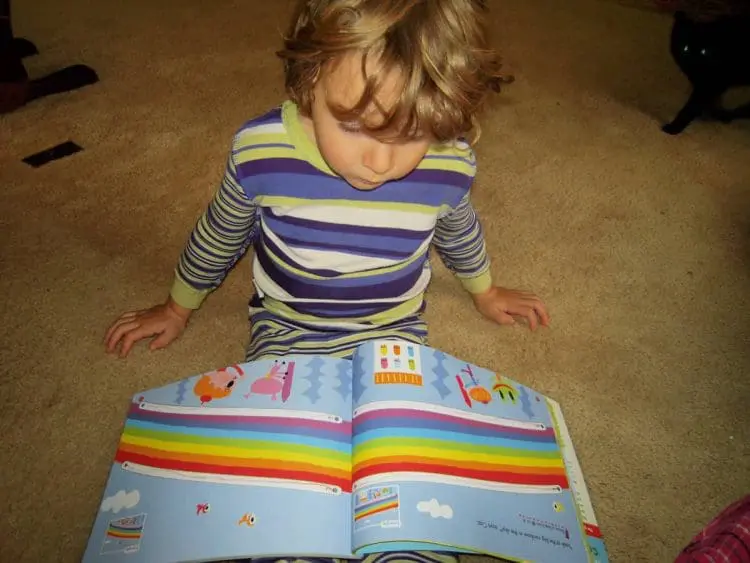
6. Reading
Okay, so this one kind of goes along with the library thing we already talked about, but the value of reading and loving books really can’t be overstated.
As a long-time tutor and educator, I can attest to the fact that students who come to love reading from an early age have a huge head start over other kids when it comes to testing and learning. Almost any kind of reading is good, or at least a good start–that can include newspapers, magazines, even comics (just take a look at them to make sure they’re appropriate).
Sometimes it can be hard to get kids to read, and to some extent you’ll have to work with your kids on this one. My mom had a simple system–if I, or one of my brothers, told her we were bored, she would have a list of chores ready for us to do. We learned pretty quickly to entertain ourselves, and that frequently meant reading. You can’t force a kid to enjoy reading, but you can make it a more attractive option. You can read together or on your own to model the desired behavior. Reading is such a fantastic summer learning activity.
To make the process even more engaging, there are various tools and platforms available today. Interactive e-books, audiobooks, and educational apps are great options. These not only make reading fun but also cater to various learning styles. You can also explore resources like online libraries and book-sharing communities. Moreover, utilizing technologies like LUCA reading tutor can significantly improve children’s reading skills by providing personalized guidance and tracking progress. These modern tools and platforms complement traditional reading, enhancing the overall reading experience for children while promoting a lifelong love for literature and learning.
7. Kitchen Math
Try teaching math through play. Involve kids in cooking or baking, letting them measure ingredients and adjust recipes to practice math in real-life ways. Cooking together is a fun and practical way to build real-world math skills. Invite your child to help with measuring ingredients, doubling or halving recipes, and setting timers. For younger kids, this might mean counting scoops of flour or comparing the sizes of measuring cups. Older children can convert units, calculate how much of each ingredient is needed if you’re making more or less, or keep a tally of how much time each step takes. You can even make it a game: “If we need ¾ cup of sugar and we only have a ¼ cup measure, how many scoops do we need?” Bonus: they get to enjoy the tasty results of their learning!
8. Water Play Science
Water play can be a hands-on way to explore scientific concepts like buoyancy, volume, and motion. Set up a plastic bin, kiddie pool, or use the bathtub. Add items like measuring cups, funnels, sponges, plastic toys, and containers of different sizes. Ask open-ended questions like, “Which objects float and which sink?” or “How can you move water from one container to another without spilling?” You can introduce basic physics by challenging kids to build a mini dam or experiment with water wheels. For a fun twist, add colored water or ice cubes and talk about temperature and melting. It’s messy, sensory-rich science that feels more like play than learning!
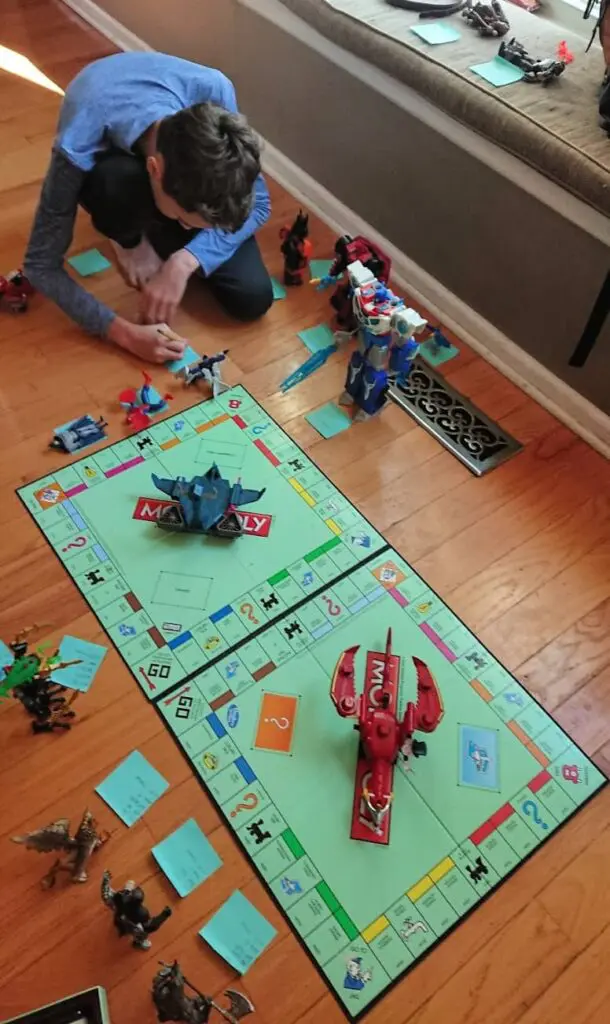
9. Design Your Own Board Game
Here’s a fun and educational idea for slightly older kids (ages 8–12) that blends creativity, critical thinking, and real-world skills. Challenge kids to create their own board game from scratch—complete with a theme, rules, game pieces, and a goal. This activity taps into storytelling, logic, and art skills, while also encouraging patience and problem-solving. They can draw their game board on cardboard or poster board, make cards with trivia or challenges, and use coins, buttons, or small toys as playing pieces. Above my son combined several existing elements into one epic game with his own detailed rules and players with defined powers. Encourage them to test it out with family or friends and revise the rules if needed. This project supports planning, writing, math (with scoring or probability), and collaboration—all while being incredibly fun and imaginative!
10. STEM Challenge
Set up a “STEM Challenge of the Week” using everyday materials like paper, tape, string, plastic cups, and cardboard. Give kids an open-ended task, such as:
- Build the tallest tower using only 20 straws and tape.
- Design a paper airplane that can fly the farthest.
- Create a bridge between two chairs that can hold the most weight.
- Make a device to safely drop an egg without it breaking (classic egg drop challenge!).
Encourage kids to sketch their designs first, test them, make changes, and explain their thinking. This kind of project builds engineering, critical thinking, and creative problem-solving skills—and it’s super satisfying to see their ideas come to life. You can even invite siblings or neighbors for friendly competitions!
Conclusion
There you have it- ten surefire ways to keep your kids busy and intellectually engaged during the summer months. The best thing you can do right now is to plan ahead. You may want to use this printable kids summer schedule template to get organized. Take a little time to poke around online, make a list of places and activities that you think your kids might be interested in, and keep it handy. That way, when you hear that inevitable phrase–“Mom, I’m bored!”–you’ll know just where to turn.
Which of these summer learning activities do you think your child will enjoy the most?
Related Posts:


Sony says
Hi, I do believe this is a great blog. I stumbledupon it. I think summer learning is very important and I found these enrichment activities useful. May you be rich and continue to guide others.
Rachel says
I don’t have a stand mixer so I use a large mixing bowl and a wooden spoon to mix the batter gently. Worked great. I love these GF cinnamon sugar donuts!
AerenLPO says
Great ideas. Even simple activities can become fun learning activities. We take a walk and encourage our kids to observe their surroundings, ask questions, and learn new words or facts.